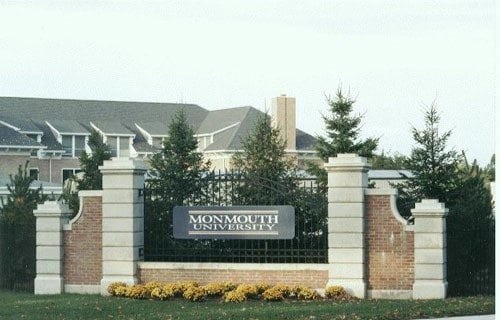
More Holiday Joy Than Stress
On Dec 18, 2015The good news in a Monmouth University Poll of the nation’s Yuletide activities is that most Americans find the holiday season more enjoyable than stressful. However, they like shopping for the holidays a lot less than they used to.
Just under half (44 percent) of Americans find the holiday season to be more enjoyable than the rest of the year while 27 percent say it is more stressful. Another 5 percent say it is both more enjoyable and more stressful and 23 percent say the holidays are no different than any other time of the year. Lower income residents (38 percent earning less than $50,000) are less likely than others (50 percent earning $50-100,000 and 52 percent earning $100,000 or more) to feel the holiday season is more enjoyable. There are no significant differences in these views of the holiday season based on age or parenthood status.
Nearly all (94 percent) Americans celebrate Christmas, while 6 percent celebrate Hanukkah and 3 percent celebrate Kwanzaa. In fact, 4 percent of the public celebrate both Christmas and Hanukkah. Just 4 percent do not celebrate any of these holidays. These results are nearly identical to a Gallup poll conducted 25 years ago (96 percent celebrated Christmas and 6 percent celebrated Hanukkah in 1990). However, those who celebrate Christmas today are less likely to observe the day’s religious aspects than Americans of a generation ago.
Just over half (53 percent) of those who will celebrate Christmas say they usually attend church either on Christmas Eve (25 percent), Christmas Day (11 percent) or potentially both (17 percent). But nearly half (45 percent) say they will not attend religious services. Back in 1989, though, a Gallup poll found that nearly two-thirds (65 percent) of those celebrating Christmas planned to attend church on Christmas Eve (30 percent), Christmas Day (19 percent), or on either day (16 percent). In the current poll, those age 55 and over (57 percent) as well as those under 55 who are parents (56 percent) are more likely than those under 55 without kids (46 percent) to attend Christmas services.
“Times have certainly changed. Christmas is still a major event on the nation’s secular calendar, but a smaller proportion observes the religious aspects of the holiday compared to a generation ago,” said Patrick Murray, director of the independent Monmouth University Polling Institute in West Long Branch, NJ. “People may feel that the season is more enjoyable than the rest of the year, but they do not look forward to holiday shopping as much as they used to.”
About 4-in-10 (39 percent) Americans who celebrate the holidays report they enjoy shopping for holiday gifts, which is down from nearly 6-in-10 (57 percent) a generation ago. Currently, 18 percent enjoy holiday shopping a great deal and 21 percent enjoy it a fair amount. Another 21 percent enjoy it somewhat, 18 percent not too much, and 20 percent not at all. A 1990 Gallup poll found that 28 percent of Americans then enjoyed holiday shopping a great deal and 29 percent a fair amount, while 14 percent enjoyed it somewhat, 16 percent not too much, and 12 percent not at all.
Among those under age 55, there is no difference between the number of parents (42 percent) and non-parents (42 percent) who enjoy holiday shopping. However, those age 55 and older (35 percent) are slightly less likely than younger Americans to find holiday shopping enjoyable.
When shopping for those holiday gifts, it’s best to go with something useful. About 4-in-5 (79 percent) Americans prefer receiving practical gifts. Just 10 percent say they want something extravagant under the Christmas tree. Another greedy 5 percent want both practical and extravagant gifts.
The Monmouth University Poll was conducted by telephone from December 10 to 13, 2015 with 1,006 adults in the United States. This sample has a margin of error of + 3.1 percent. The poll was conducted by the Monmouth University Polling Institute in West Long Branch.
Related Articles:





